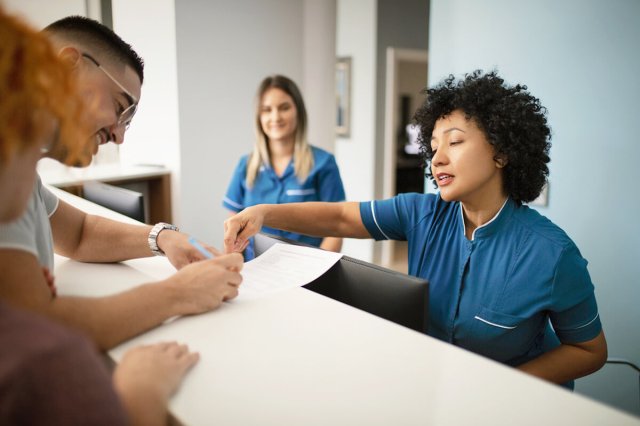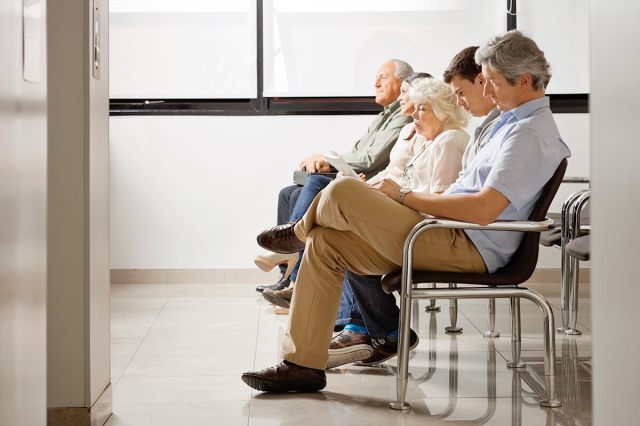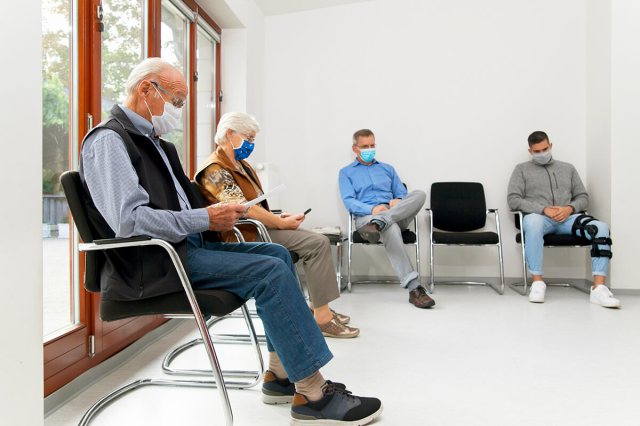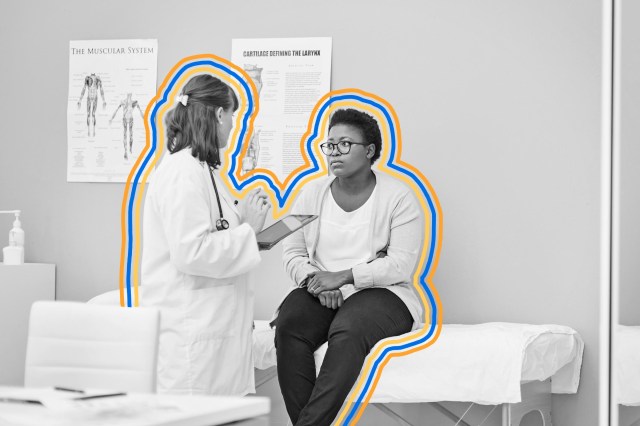
Arrive Early
Because doctors and medical staff typically have tight schedules, it’s important to arrive not just on time, but preferably early for medical appointments. If the first patient of the morning is late, it can delay every subsequent appointment throughout the day. Plan to arrive at least 15 to 20 minutes prior to your scheduled appointment time so you can check in, complete any necessary paperwork, and have your vital signs recorded. Arriving early can also help ease your stress so you’re composed and ready when you see the doctor.
If you know you’re going to be late for your appointment, call the office as soon as possible to notify them and minimize or avoid any disruption to their schedule. They may be able to accommodate a late arrival, but you should be prepared to have to reschedule your appointment if you’re considerably late.

Know the Cancellation Policy
Familiarize yourself with your doctor’s cancellation and no-show policies, which are typically posted on the practice’s website. Call the office as soon as you know you need to cancel or reschedule an appointment and ask for guidance. Try to be understanding and flexible regarding rescheduled appointments — and be aware that some doctors’ offices will charge a fee for a no-show or an appointment that’s cancelled less than 24 hours in advance.

Follow All Office Policies and Procedures
Every doctor’s office has its own specific set of rules and guidelines, from mask requirements to payment protocols. Familiarize yourself with these policies beforehand to avoid any surprises. If you’re unsure about anything, don’t hesitate to call the office and ask ahead of time.
More Interesting Reads

Practice Being a Patient Patient
Medical offices are busy places, and delays are sometimes unavoidable due to emergencies or consultations that run longer than expected. While waiting can be frustrating, make the most of any reasonable wait time by reading a book or magazine or pursuing another quiet activity such as knitting or scrolling your phone. If more than 30 minutes have passed since your scheduled appointment time and no one has communicated with you about when you can expect to be seen by the doctor, feel free to politely inquire. If the wait time is unknown or seems excessive, you can ask to reschedule.

Come Prepared
Preparation is key to making the most of your appointment. Bring a list of your current medications, any symptoms you’re experiencing, and all the questions you’d like to discuss. If this is your first visit to the office, have your medical history, insurance card, and identification handy. Writing down your concerns beforehand ensures you don’t forget anything important and allows the doctor to address your issues more efficiently.

Communicate Effectively
Be honest about your symptoms, lifestyle, and medical history, even if the topics are uncomfortable. Doctors rely on accurate information to provide the best care, and it’s their job to protect your privacy. At the same time, try to keep things concise to avoid overwhelming the doctor with unnecessary details. Stick to the facts and answer their questions as clearly as possible. If you come to the appointment to support someone else, keep their needs in mind and allow them space to communicate directly with the medical staff, only contributing to the discussion when necessary.

Respect Privacy and Boundaries
Avoid asking fellow patients about their reasons for visiting or making unnecessary small talk in the waiting room. Respect the privacy of others by keeping conversations discreet and avoiding eavesdropping. Be aware of your physical space and try your best not to encroach on others. Remember that medical information is private, so don’t ask doctors, nurses, or any other staff members about other patients.

Minimize Phone Usage
It’s fine to use your phone to read or text while waiting, but keep the volume muted. You can use headphones or earbuds to listen to an audiobook or watch a video, but you may want to leave one out so you can easily hear when your name is called. To avoid invading the privacy of others, don’t make video calls or take photos while in the waiting room. Keep your phone on silent and step outside if you need to take an urgent call.

Don’t Bring Anyone Who Doesn’t Need To Be There
Keep in mind that doctor’s offices are often crowded during peak times and seating space may be scarce. It’s fine to bring along a friend or family member as a patient advocate, but avoid having multiple people accompany you to an appointment. If it’s necessary for you to bring children along, make sure they’re supervised, and bring some quiet activities to keep them occupied.












